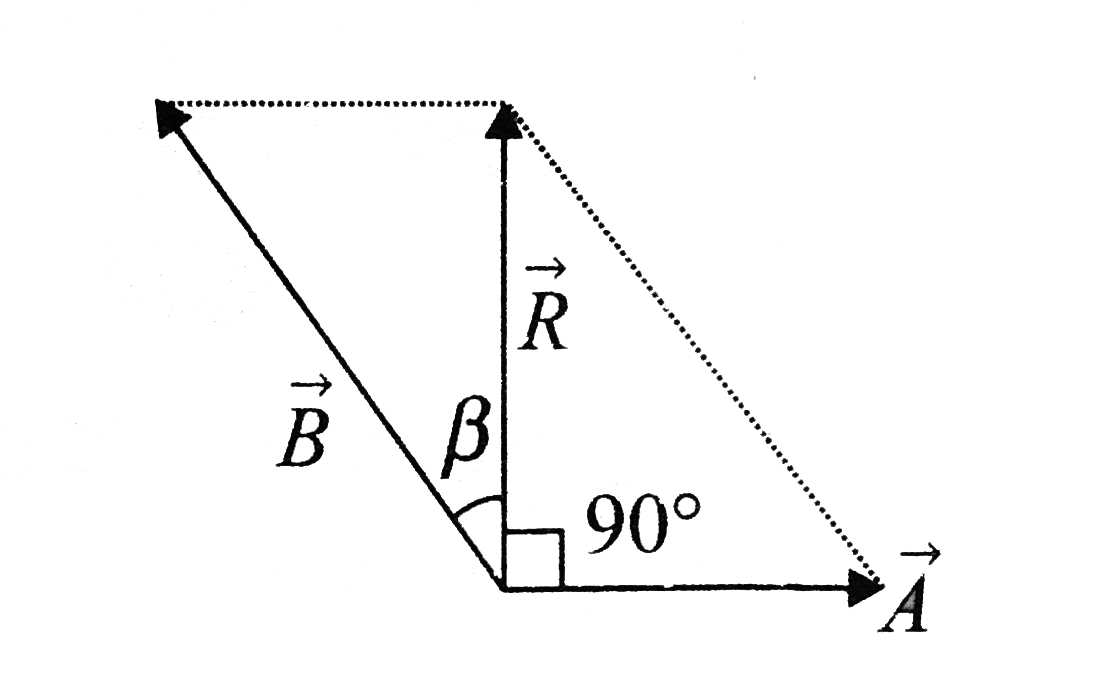The resultant of two vectors and is . If the magnitude of is doubled, the new resultant vector becomes perpendicular to . Then, the magnitude of is equal to
P+Q
Q
P
The correct Answer is:B
Step by step video, text & image solution for The resultant of two vectors vec(P) and vec(Q) is vec(R ). If the magnitude of vec(Q) is doubled, the new resultant vector becomes perpendicular to vec(P). Then, the magnitude of vec(R ) is equal to by Physics experts to help you in doubts & scoring excellent marks in Class 11 exams.
Topper's Solved these Questions
- BOOK - TARGET PUBLICATIONCHAPTER - SCALARS AND VECTORSEXERCISE - Competitive Thinking64videos
SCALARS AND VECTORS
- BOOK - TARGET PUBLICATIONCHAPTER - SCALARS AND VECTORSEXERCISE - Evaluation Test19videos
SCALARS AND VECTORS
- BOOK - TARGET PUBLICATIONCHAPTER - SCALARS AND VECTORSEXERCISE - Evaluation Test19videos
SCALARS AND VECTORS
- BOOK - TARGET PUBLICATIONCHAPTER - REFRACTION OF LIGHT EXERCISE - EVALUATION TEST12videos
REFRACTION OF LIGHT
Similar Questions
Knowledge Check
- Question 1 - Select One
The resultant of two vectors →P and →Q is →R. If →Q is doubled then the new resultant vector is perpendicular to →P. Then magnitude of →R is :-
AP2−Q22PQBQCPQDP+QP−Q - Question 2 - Select One
The resultant →Pand→Q is perpendicular to →P. What is the angle between →Pand→Q?
Acos−1(P/Q)Bcos−1(−P/Q)Csin−1(P/Q)Dsin−1(−P/Q) - Question 3 - Select One or More
if →P×→R=→Q×→R, then
A→P=→QB→P and →Q need not be equalCThere are infinite number of possibilities for →P (If →Q and →R are given ) which satisfy this relationship.D→p and →Q must be coplanar
The resultant of →Pand→Q is →R. If magnitude of →Q is doubled, magnitude of resultant is also doubled,when direction of →Q is reversed from initial condition then magnitude of resultant is again doubled, find P:Q:R.
View SolutionTwo vectors →a&→b have equal magnitudes of 10 m ,. Find the magnitude and direction of the resultant vector .
View SolutionTwo vectors →P and →Q are added, the magnitude of resultant is 15 units. If →Q is reversed and added to →P resultant has a magnitude √113 units. The resultant of →P and a vector perpendicular →P and equal in magnitude to→Q has a magnitude
View SolutionThe maximum value of the magnitude of the resultant of two vectors →Pand→Q is 24 units and the minimum value of the magnitude of their resultant is 4 units. What is the ratio of the magnitudes of the vectors →Pand→Q ?
View SolutionThe resultant of two vectors →A and →B is perpendicular to the vector →A and its magnitudes is equal to half of the magnitudes of vector →B (figure). The angle between →A and →B is
 View Solution
View Solution

